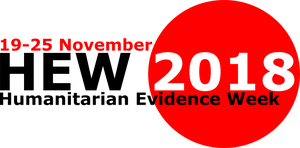 We continue our promotion of Humanitarian Evidence Week with a selection of blog texts, and a reminder about the webinar.
We continue our promotion of Humanitarian Evidence Week with a selection of blog texts, and a reminder about the webinar.
Blog: Clinical evidence from humanitarian settings: The case report and its importance
Written by Marta Balinska, MSF Switzerland, Joanna Ventikos, Oxford University Press and Iveta Simera, Global Health Network.
Clinical case reports – or descriptions of an individual’s illness and treatment – are probably the oldest form of medical investigation. Before epidemiology emerged as a major health science in the 20th century, case reports (including notes from examinations of patients after their death) were the most common “evidence” on which physicians could draw, beyond their own experience. Today, we are more familiar with medical studies looking at multiple individuals in specific population groups and using statistical analysis to describe what happened to them and to predict what might happen in the future. However, the case report remains a corner stone of medical research and medical education, as a unique tool to identify new or under-reported diseases, record rare events, explore differential diagnosis, and describe hands-on experience in the management of patients. It can also draw attention to an unrecognized public health need or illustrate an ethical dilemma. [READ MORE]
Webinar: Finding the evidence for global and disaster health
A practical session (at 3.30pm GMT) from IFLA Evidence for Global and Disaster Health SIG led by Caroline De Brun, Public Health England, and Isla Kuhn, University of Cambridge. Details of a new resource guide will be included. Registration details to come.